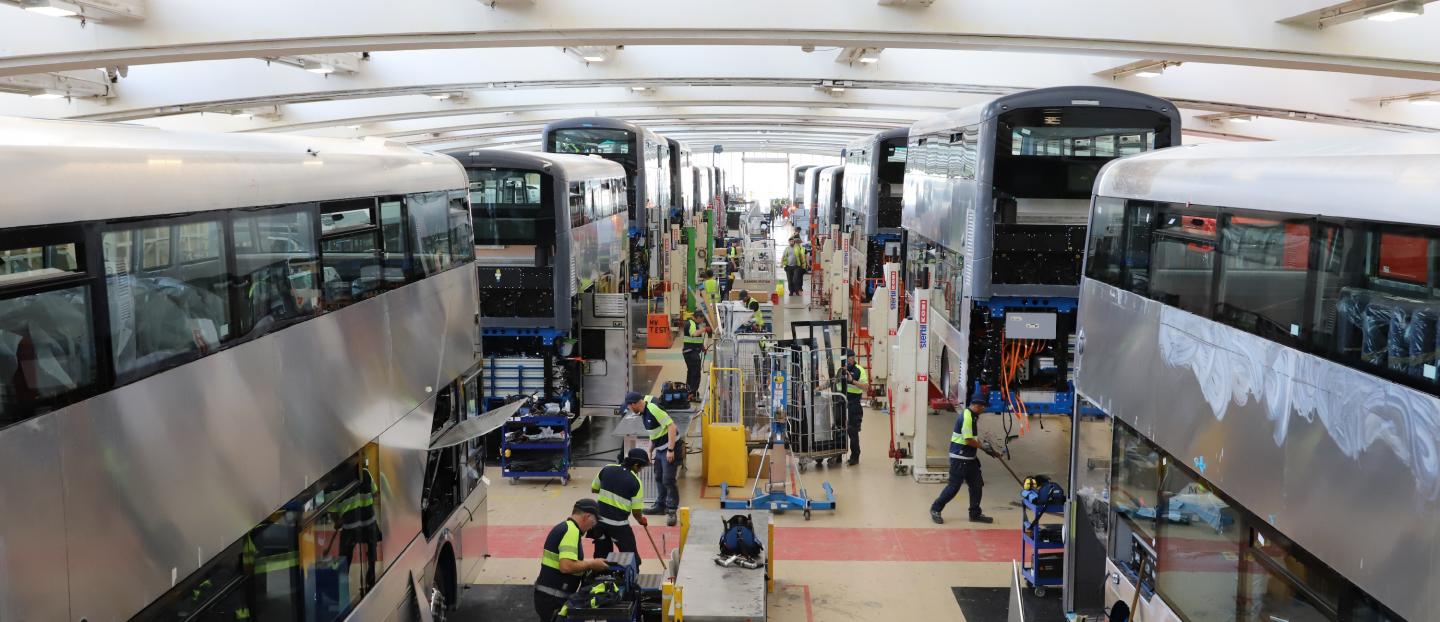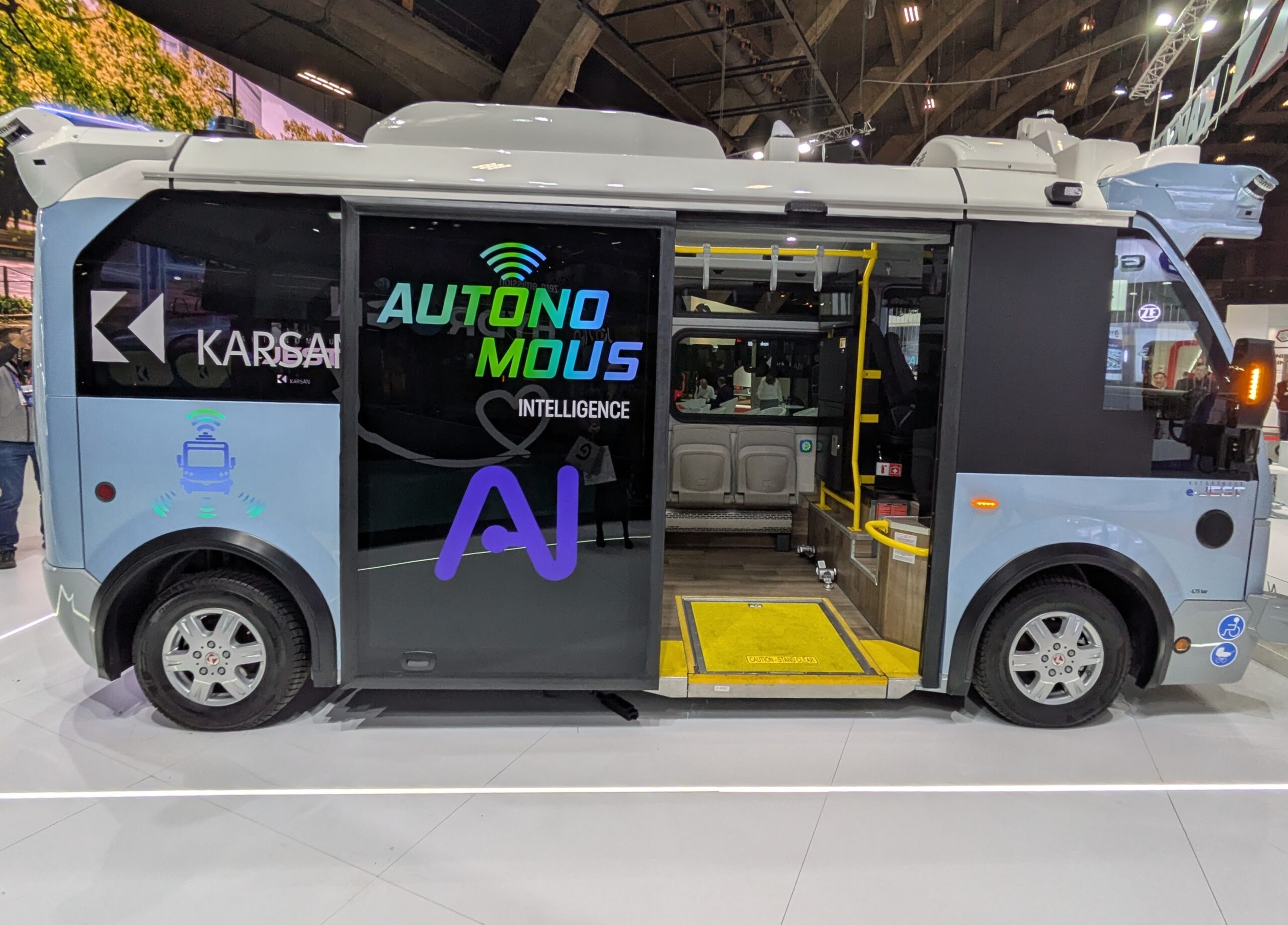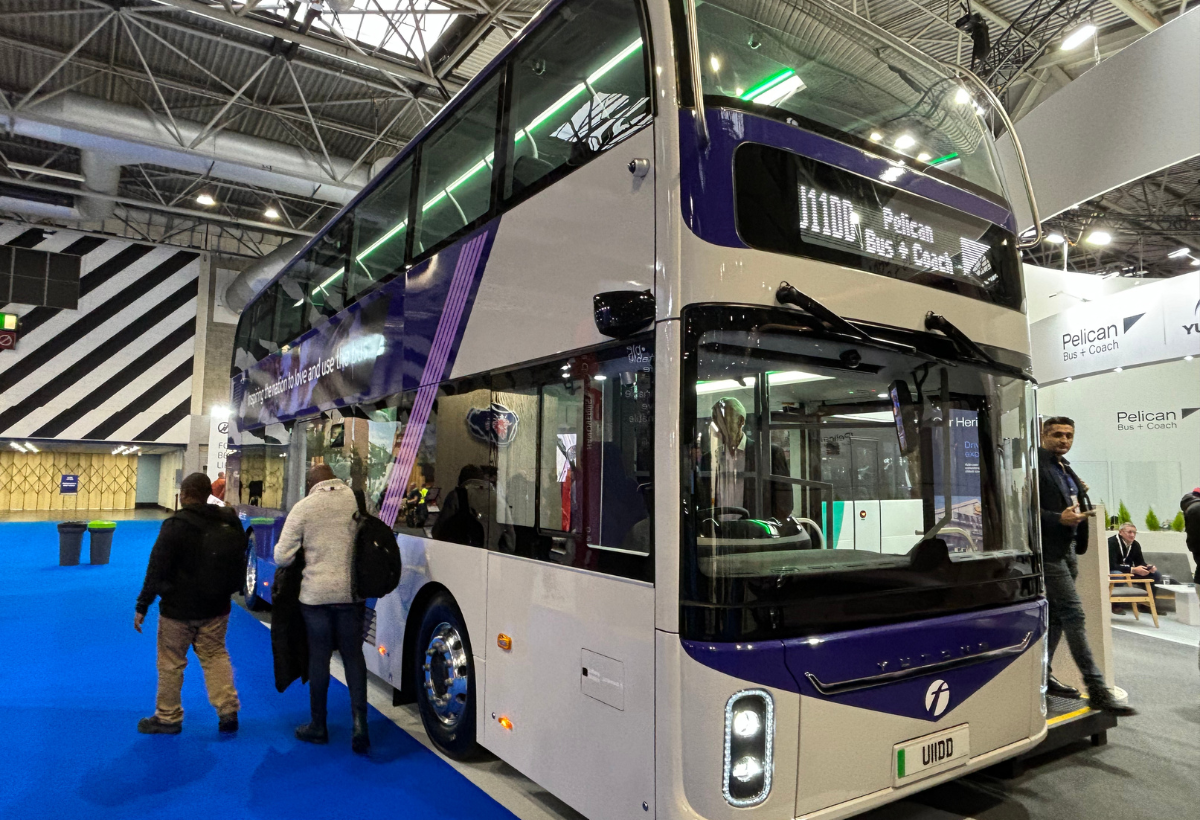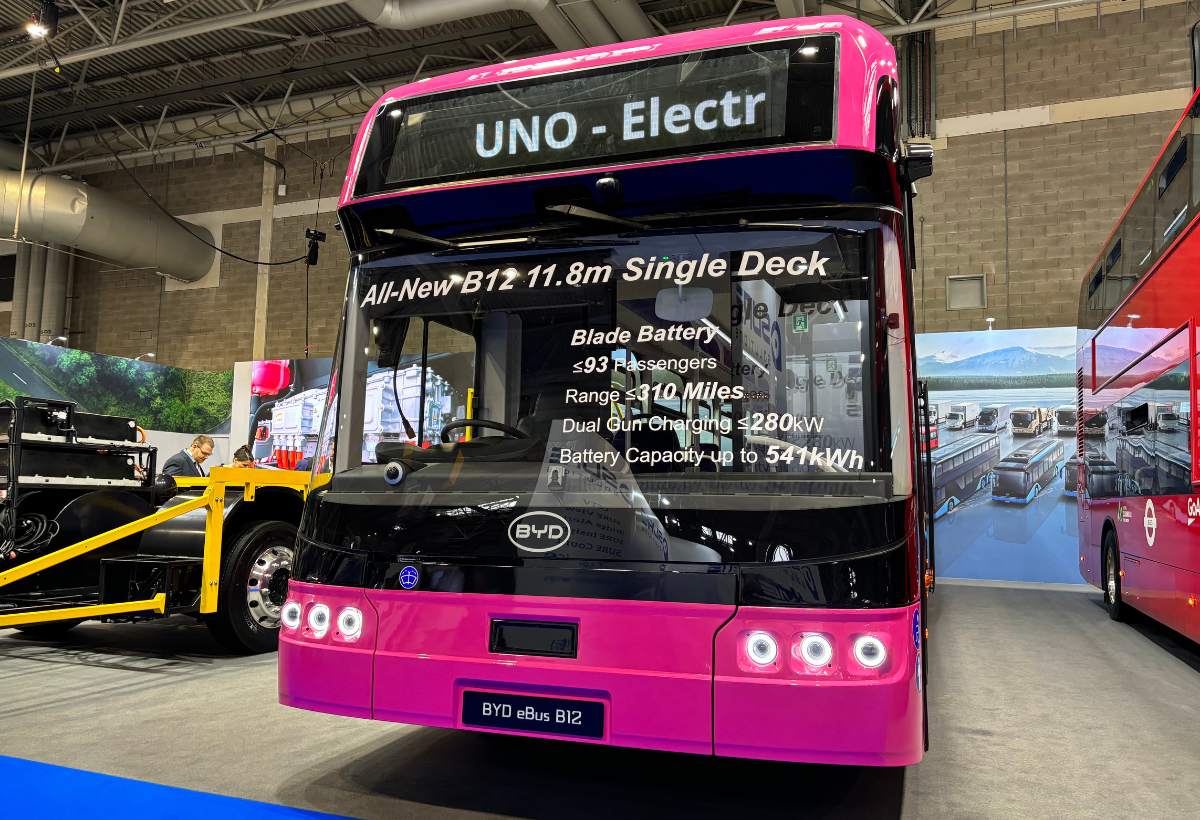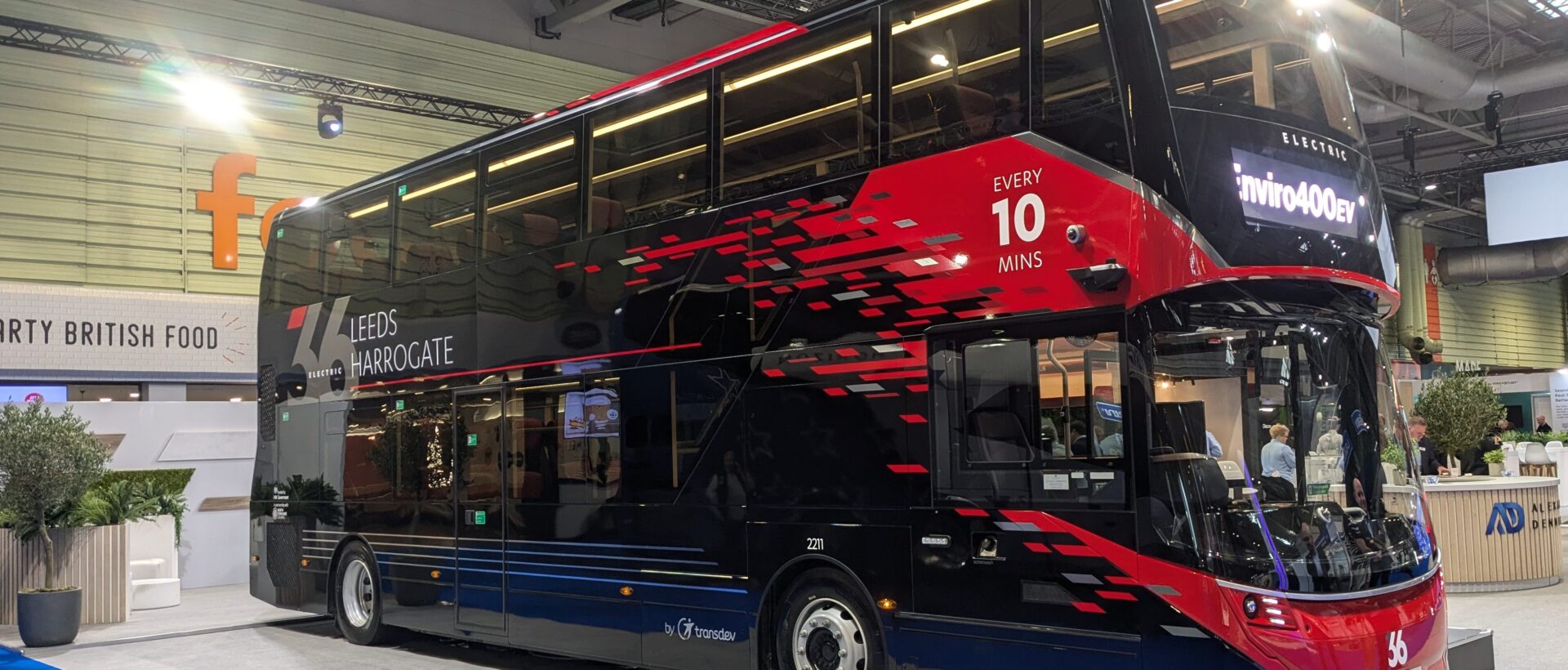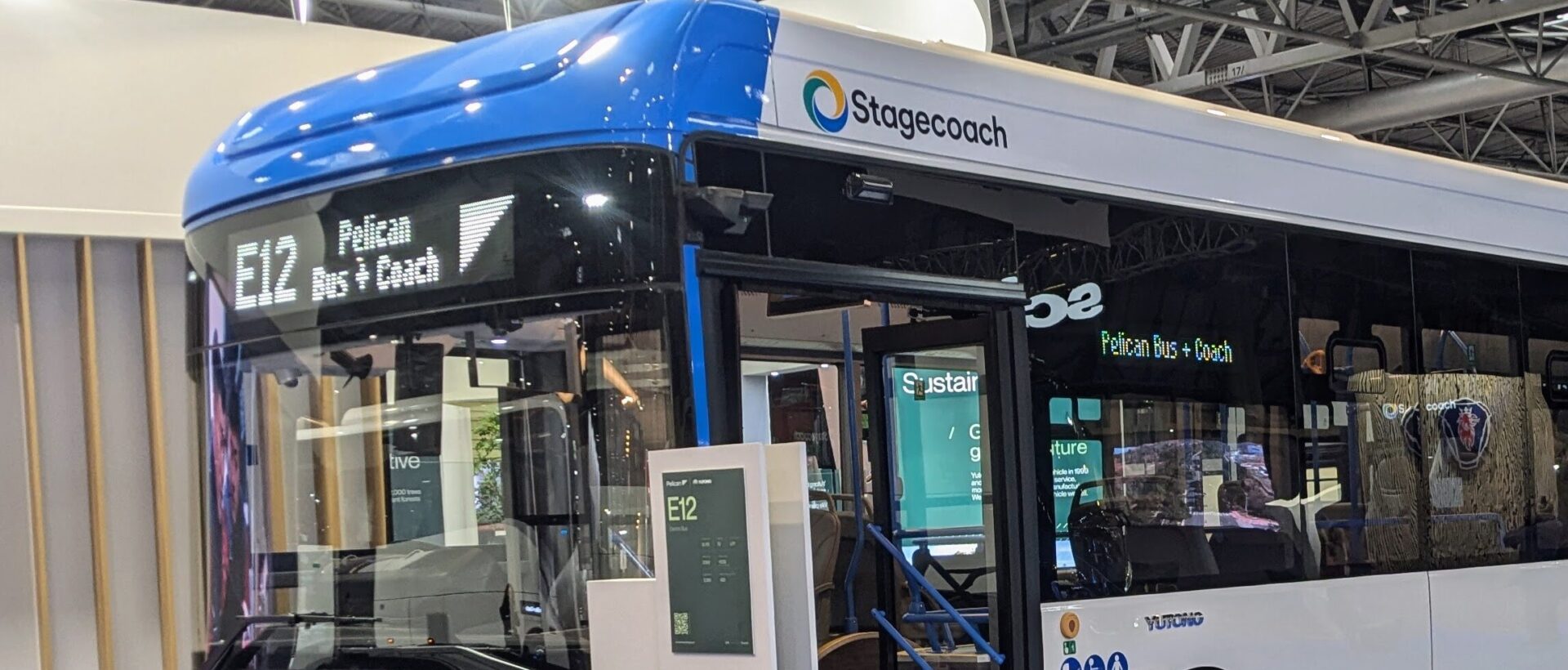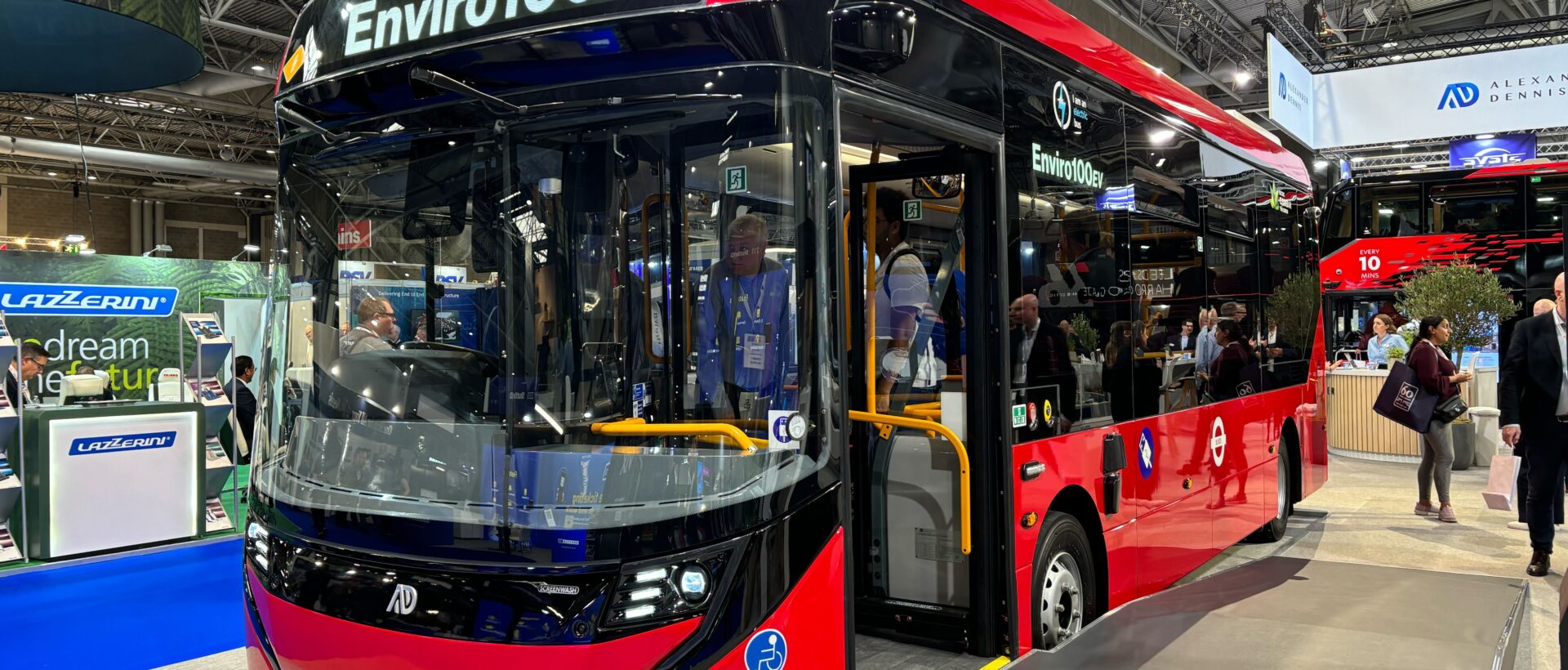At this year’s Euro Bus Expo, held in the NEC in Birmingham, England, industry experts gathered to discuss the enormous accessibility changes facing the bus sector over the last five years.
With rafts of changes, new regulations and enforcements being introduced nearly month-to-month, the landscape of the industry is ever-evolving, and whilst for some companies this is a chance to prove their ability to grow and embrace the challenges of accessibility, others may feel the pinch of the rapidly-moving goalposts, be it monetarily or practically.

Chaired by CPT Operations Director, Keith McNally, The Accessibility Challenge brought together four key figures from the industry: Chris Edwards-Thorne (Marketing Manager Global Transport, Altro), Roland Eglinton (Managing Director, Chalkwell Coach Hire), Barclay Davies OBE (Director for Wales, Bus Users UK) and Adam Rideout (Head of Customer Experience, National Express Bus) to provide a brief snapshot of the challenges they face in implementing accessibility features in their respective companies.
PSVAR & PSVAIR
McNally opened the seminar with a brief history of the introduction of the UK Government’s Public Service Vehicles Accessibility Regulations scheme (PSVAR), a set of regulations pertaining to all new public service vehicles introduced on 31 December 2000. McNally detailed some of the challenges associated with the implementation of new aspects & regulations since its introduction.
Within the scheme’s history, McNally paid particular attention to industry confusion in 2019 surrounding the definition of medium-term exemptions (MTEs) from the PSVAR scheme. This impacts services such as home-to-school and Rail Replacement Services. A review of these exemptions and its associated call for evidence ran throughout the summer of 2023, with a delayed verdict yet to be decided following the country’s change of governing party earlier this year.
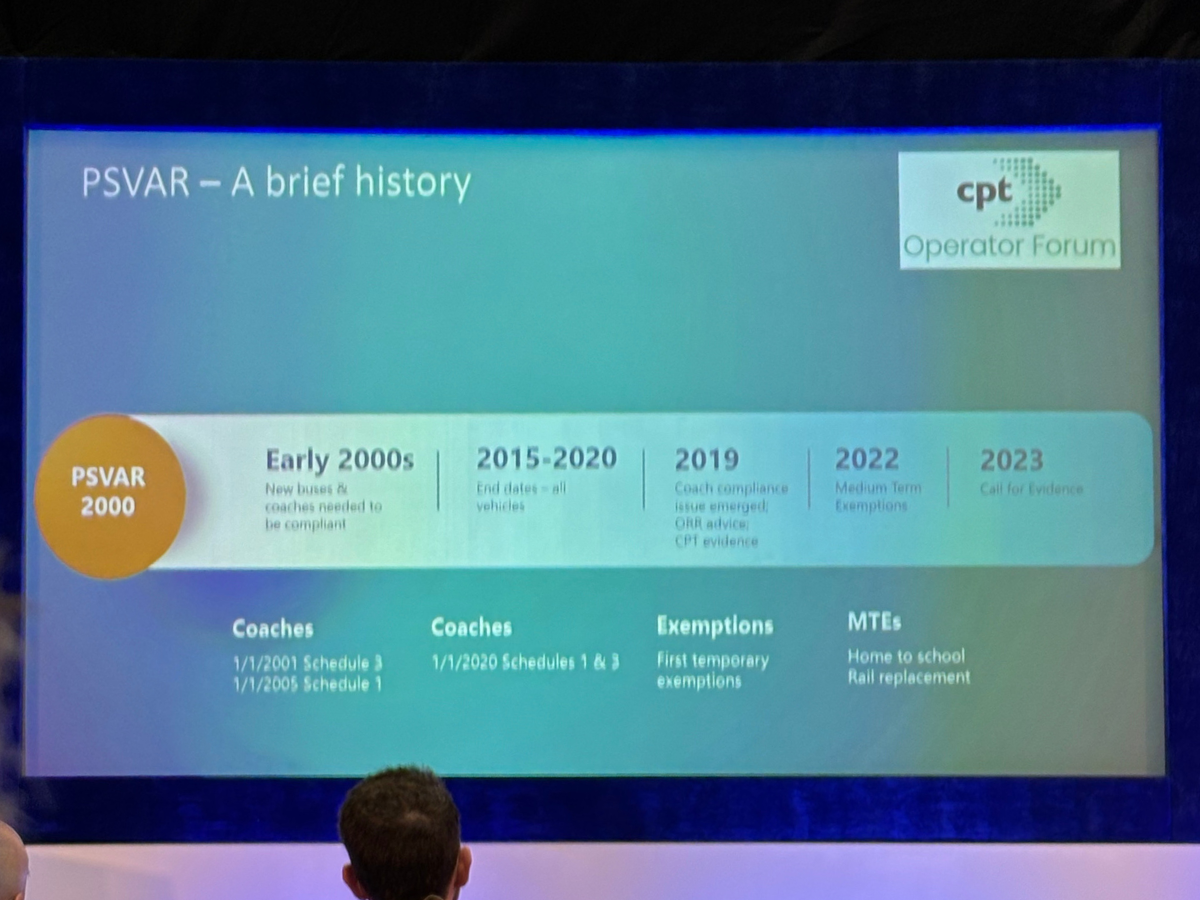
Moving on, McNally brought to the fore the introduction of the government’s Public Service Vehicles (Accessible Information) Regulations scheme (PSVAIR), an additional set of rules & exemptions laid out in 2023 to define a series of new compliances for ‘local services’.
With this came the implementation of ‘part compliance’ status qualifications, which allow for various stages of vehicle modification compliance and in turn gradual acclimatisation to the fast-changing set of regulations before any kind of final qualification.
The latest regulations to come from PSVAIR include the addition of a screen containing visual information for rear-facing wheelchair passengers, with compliance required for any vehicle manufactured from October 2024.
National Express: Early Adoption & Consistent Compliance
Introducing its first low-floor double-decker vehicle in 1998 (the second to debut in the UK, with the first coming courtesy of Optare’s DAF DB250LF in 1997); National Express was naturally positioned as an early innovator in the area of coach-accessibility, and in the ensuing years, National Express Head of Customer Experience, Adam Rideout, believes the company has continued making strides to provide more access to disabled customers on a consistent basis.
Speaking on the last ten years, Rideout detailed the work the company has contributed thus far in the audio/visual field, as well as the crucial importance of the colour and design of vehicles within its fleet, radiating a sense that National Express has almost relished the chance for continued innovation both on-board and on vehicle exteriors (even though, as Rideout would state, he “also loves pretty colours”).
However, it is clear that emphatic compliance is no easy feat. With the introduction of rapid changes in vehicle regulation comes significant, equally rapid changes in maintenance processes, which presents a key issue affecting the sector as a whole whilst innovations are being made, not to mention growing insurance costs and constant internal business struggles.
Altro: Neurodiversity & Aesthetic Requirements, Not Choices
With a strong focus on neurodivergent passengers, Altro’s Marketing Manager of Global Transport, Chris Edwards-Thorne, believes that design and aesthetics can provide safe, secure environments to those suffering on a daily basis through the use of colouring and patterns and designation.
Speaking of the industry as a whole, Edwards-Thorne made the case that the sector could be a step behind in innovative solutions for disabled passengers, whilst also making it clear this is not necessarily an intentional fault, but a case of a lack of education and awareness, citing a large percentage of disabled users’ invisible disabilities as a reason for potential misunderstanding.
For those with autism, ADHD or other less-visible disabilities, Edwards-Thorne spoke of the barriers in the way of employment, with public transport often failing to provide an adequate, comfortable experience for those relying on these services to carry out even the most basic daily tasks, let alone find safe, reliable travel arrangements to and from places of work.
Rounding off, Edwards-Thorne re-iterated that whilst a wealth of accommodations are made for passengers with physical disabilities, there is still much more to be done to fully help integrate the same level of assistance for neurodivergent passengers and those with visual impairments throughout the UK.
Bus Users UK: Infrastructure & Independence
Echoing Edwards-Thorne’s statements, Bus Users UK Director for Wales, Barclay Davies OBE, brought forward the statistic that with 1 in 5 people in the UK are classified as disabled, 80% of those are classed as being diagnosed with an invisible disability.
With the publishing of its latest report, Why Are We Waiting? this past September (in partnership with the Motability Foundation), which invited 32 disabled passengers to complete a two-week diary documenting recent bus journeys, the company found that a key area of difficulty presented by public transport was the notion of independence.
Speaking of experiences discussed by the range of interviewees, Davies stated that bus travel is a crucial lifeline for those with disabilities, detailing in one case a passenger with muscular dystrophy who, with the aid of local bus services, is able to travel to local shops, healthcare appointments and leave their house on much more regular basis than without.
In another example, Davies shared sentiments from a passenger suffering from agoraphobia, anxiety and depression who believes that buses are one of few places where they truly feel integrated, feeling comfortable to interact and speak with other passengers.
However, despite several passengers’ positive experiences in using public transport, significant issues were raised throughout the report concerning the state of bus stops, their usability and their inadequacy. For example, Davies mentioned one user’s difficulty in accessing a bus stop due to its dangerous environment, while another stated their stop is merely a space with no seat or shelter. This was a reoccurring issue throughout the discussion, and one that is in clear need of evaluation.
Praising National Express’ engagement with accessibility design groups, Davies went on to recount the comments made by a wheelchair user on the design of wheelchair-accessible seating areas, with rear-facing seats often lacking passenger information (as is to be addressed by new PSVAIR implementation).
Uneven terrain was also addressed, with accounts of passengers unable to access low-level bus floors due to uneven pavements and unreliable vehicle lifts, in some cases causing embarrassment.
Chalkwell Coach Hire: Assistance & An Ever-Evolving Field
Coming from a self-confessed contrarian position, Managing Director of Chalkwell Coach Hire, Roland Eglinton is in a much trickier position as the head of an SME compared to much larger operators like National Express. Whilst making it clear the changes and accommodations being implemented are something his company desires (with Eglinton himself having children with disabilities), he has found they do not come without significant risks for a company with very little assistance.
Eglinton went on on to detail maintenance, insurance and the constant moving of goalposts when it comes to compliance and necessary changes, with the cost of pre-mature decisions becoming more and more financially destructive as regulations move along.
However, according to Eglinton, there are even more factors to consider when retrofitting vehicles to keep up with government demands. In order to meet compliance with PSVAR, it costs roughly 20,000 to 30,000 GBP per vehicle, with units then being forced out of active operation for several months at a time. In some cases, Eglinton states, the additions made to each vehicle are rarely used.
Evidently, Eglinton believes that to keep up with evolving regulations, more assistance needs to be provided to SMEs within the UK to keep the companies both compliant and, crucially, in operation.
Vehicle Design, Apps and Comfort
Before passing the discussion to the audience, McNally opted to take the floor to ask the opening question, directing his query toward Edwards-Thorne for clarification on the idea of bus design improving accessibility options for disabled users.
Speaking of neurodivergent passengers, Edwards-Thorne talked of the struggles experienced by those travelling to work each day who are directly affected by vehicle layouts. Such people lose time in their workday when having to re-acclimatise following daily hurdles associated with merely getting to their places of work. This impact therefore emphasises the importance of bus design.

The topic then turned to the use of apps and their viability to allow disabled passengers, particularly those with neurodivergent requirements, to feel confident in knowing when their transport is due to arrive.
Furthermore, a question from the audience mentioned the controversy surrounding the use of live passenger occupancy technology, which was referred to as being potentially commercially sensitive for the companies choosing to utilise it.
Rideout stated that National Express has previously attempted to implement more technology to allow app users to track availability, but believes that the technology required still cannot fully deliver satisfactory information for those in need.
Rounding off questions, discussion once more turned to the lack of truly accessible bus stops throughout the UK, making it evident that funding for infrastructure is something in desperate need of a review by the UK Government. With the implementation of real-time information at stops, all are agreed it would provide enormous aid for those forced to wait in what can be unfavourable conditions. Until there is a larger budget for councils and operators, this issue will stand for the long haul.
Accessibility: Are We There Yet?
Coming away from the discussion, it is clear that whilst companies across the UK are striving to make transport more accessible for all, this will only be achieved through cooperation between operators, SMEs and the government.
Steps can be taken to ensure that passengers in need are kept comfortable, but in order to keep companies both afloat and compliant, a bigger support network is crucial for everybody involved, and with further regulations on the horizon, time is of the essence.











